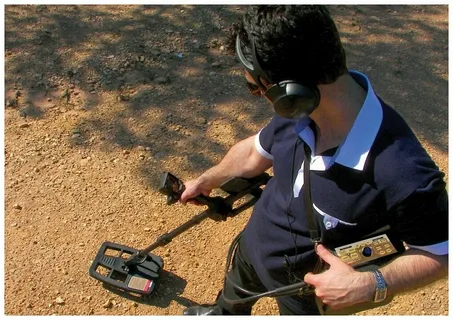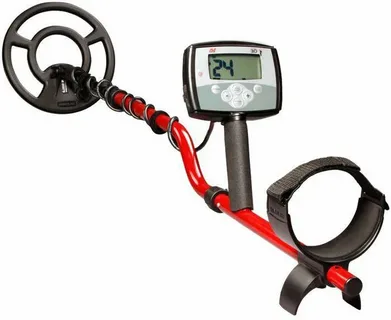Advanced autopilot systems for ship captains have revolutionized the way maritime safety is enhanced. These innovative technologies have paved the way for more efficient and reliable navigation, allowing ship captains to exercise better control over their معدات تنقيب 24 (18/11) vessels. With the integration of advanced autopilot systems, maritime safety has seen a significant improvement, ultimately leading to a reduction in accidents and incidents at sea. In this article, we will explore the various ways in which advanced autopilot systems are enhancing maritime safety for ship captains.
Enhancing Maritime Safety with Advanced Autopilot Systems for Ship Captains is a crucial development in the maritime industry. These systems utilize advanced technology, including sensors, cameras, and artificial intelligence, to provide ship captains with enhanced navigation and collision avoidance capabilities. The autopilot systems can analyze real-time data and make adjustments to the ship’s course, speed, and heading, improving overall safety and reducing the risk of accidents at sea. This technology also allows ship captains to have better control and awareness of their surroundings, ultimately leading to a safer and more efficient maritime operation.
Navigating the Future: Advanced Autopilot Systems for Ship Captains

With advancements in technology, ship captains now have access to advanced autopilot systems that have drastically improved navigation capabilities on the open sea. These sophisticated systems utilize a combination of GPS, radar, and sensors to automatically steer the ship, maintain a set course, and even adjust to environmental factors such as wind and currents. These advanced autopilot systems not only relieve captains of some of the manual labor of steering the ship, but also provide greater accuracy, efficiency, and safety in navigation. Captains can now focus on other critical aspects of the voyage while trusting in the capabilities of these cutting-edge autopilot systems.
Navigating the Future: Advanced Autopilot Systems for Ship Captains is a training course designed to teach maritime professionals about the latest technology in autopilot systems. The course covers topics such as electronic navigation, dynamic positioning, collision avoidance systems, and other advanced features available in modern ships. Participants will also learn about the integration of autopilot systems with other onboard systems and the proper use of these technologies to enhance safety and efficiency at sea. The course is suited for experienced ship captains and officers looking to stay current with the latest advancements in maritime technology.
Smooth Sailing: The Benefits of Advanced Autopilot Systems for Ship Captains

ٍSee Also: Maximizing Excavator Productivity with Top-Performing Attachments
Smooth Sailing: The Benefits of Advanced Autopilot Systems for Ship Captains provides detailed information on how advanced autopilot systems can enhance the efficiency and safety of maritime navigation. The article covers the various features and capabilities of these systems, such as adaptive route planning, collision avoidance, and precise maneuvering. It also discusses the positive impact of autopilot technology on crew workload and fatigue, as well as its potential to optimize fuel consumption and reduce environmental impact. Overall, the article delves into the significant advantages that advanced autopilot systems offer to ship captains and crew members in modern marine operations.
Taking Control: How Advanced Autopilot Systems Empower Ship Captains

Taking Control: How Advanced Autopilot Systems Empower Ship Captains explores the benefits and capabilities of modern autopilot systems in the maritime industry. The article delves into how these systems provide captains with greater control over their vessels, enhance safety, and improve efficiency in navigation. It also discusses the integration of artificial intelligence and advanced sensor technologies in autopilot systems, allowing captains to make informed decisions and maintain situational awareness while at sea. Additionally, the article highlights the role of autopilot systems in reducing human error and fatigue, ultimately empowering ship captains to operate their vessels more effectively.
Next-Level Navigation: The Role of Advanced Autopilot Systems for Ship Captains

Next-Level Navigation: The Role of Advanced Autopilot Systems for Ship Captains explores the impact of advanced autopilot systems on the traditional role of ship captains. The article delves into the increasing use of autonomous technology in the maritime industry and the implications for ship navigation. It discusses how these systems can assist captains in optimizing routes, improving fuel efficiency, and enhancing safety. Additionally, it examines the potential challenges and ethical considerations associated with the integration of advanced autopilot systems. Overall, the article provides an in-depth analysis of the evolving role of ship captains in the era of advanced autopilot technology.
ٍSee Also: Selecting the Perfect Excavation Equipment for Your Mining Operation
Enhancing Safety at Sea: The Evolution of Advanced Autopilot Systems for Ship Captains
Enhancing Safety at Sea: The Evolution of Advanced Autopilot Systems for Ship Captains focuses on the development and implementation of advanced autopilot technologies for ships. These systems are designed to enhance safety and efficiency by assisting ship captains in navigating and controlling their vessels. The article discusses the evolution of autopilot systems, from basic systems to advanced technologies incorporating artificial intelligence and machine learning. It also explores the benefits of these advanced autopilot systems, including improved navigation, reduced human error, and enhanced safety at sea.
Mastering the Waves: How Advanced Autopilot Systems Are Revolutionizing Ship Navigation
“Mastering the Waves: How Advanced Autopilot Systems Are Revolutionizing Ship Navigation” is a comprehensive look at the impact of advanced autopilot technology on the maritime industry. The book delves into the development and implementation of these systems, their impact on navigation efficiency and safety, and the potential future advancements in the field. It also explores the challenges and opportunities that come with integrating advanced autopilot systems into traditional ship operations. With insights from industry experts and real-world case studies, the book provides a valuable resource for anyone interested in the intersection of technology and maritime navigation.
Precision Piloting: The Impact of Advanced Autopilot Systems on Ship Captains
Precision piloting refers to the use of advanced autopilot systems on ships to assist captains with navigating and maneuvering their vessels. These systems can significantly impact the role of ship captains by enhancing their ability to control and steer the ship with increased accuracy and efficiency. Advanced autopilot systems can automate various tasks such as course corrections, speed adjustments, and collision avoidance, allowing captains to focus on overall decision-making and strategic navigation. Additionally, these systems can help minimize human error and reduce the physical and mental workload on captains, thereby improving safety and operational performance at sea. As technology continues to advance, the impact of advanced autopilot systems on ship captains is expected to further shape the future of marine navigation and piloting.
The Future of Maritime Navigation: Advanced Autopilot Systems for Ship Captains
The Future of Maritime Navigation: Advanced Autopilot Systems for Ship Captains focuses on enhancing navigation capabilities through the development and implementation of advanced autopilot technology. These systems aim to improve vessel safety, reduce human error, and increase operational efficiency. They incorporate features such as artificial intelligence, machine learning, and sensor fusion to enable autonomous and semi-autonomous navigation, allowing ship captains to have better control and situational awareness while at sea. Advanced autopilot systems also have the potential to revolutionize the maritime industry by enabling remote operation and integration with other smart technologies. Overall, they represent a significant advancement in maritime navigation and have the potential to shape the future of the industry.
Empowering Captains: The Advantages of Advanced Autopilot Systems for Ship Navigation
ٍSee Also: Revolutionizing Mining Operations with Advanced Trucks and Excavators
Empowering Captains: The Advantages of Advanced Autopilot Systems for Ship Navigation explores how advanced autopilot systems can improve the efficiency, safety, and accuracy of ship navigation. These systems use advanced technologies such as GPS, radar, and sensors to autonomously control a vessel’s direction and speed, allowing captains to focus on other critical tasks. The benefits of these systems include reduced human error, fuel savings, improved route optimization, and enhanced situational awareness. Overall, advanced autopilot systems offer significant advantages for captains and ship navigation.
Braving the Seas: The Integration of Advanced Autopilot Systems for Ship Captains
Braving the Seas: The Integration of Advanced Autopilot Systems for Ship Captains is a comprehensive guide that explores the implementation of advanced autopilot systems in modern maritime navigation. This book covers the operational, technical, and regulatory aspects of integrating autopilot technology into ship navigation, providing valuable insights for ship captains and deck officers. The authors delve into the benefits and challenges of using autopilot systems, as well as best practices for their efficient and safe use at sea. With a focus on practical applications and real-world scenarios, this book is a valuable resource for maritime professionals looking to enhance their understanding of advanced autopilot systems.
In conclusion, advanced autopilot systems for ship captains have shown great potential in enhancing maritime safety. These systems provide valuable assistance to captains in navigating through challenging waters, mitigating the risk of human error and improving overall operational efficiency. As technology continues to advance, incorporating these advanced autopilot systems into maritime operations will undoubtedly contribute to a safer and more secure shipping industry.
Essential Tools for Commercial Ship Captains: A Must-Have List
See also
https://www.cotech.ca/fr/produits/equipements-dexcavation/
https://www.kapriol.com/fr/outils-d-excavation
https://www.bafu.admin.ch/bafu/fr/home/themes/dechets/guide-des-dechets-a-z/materiaux-d-excavation.html
https://v2vmyshopbtp.fr/282-equipement-excavation





